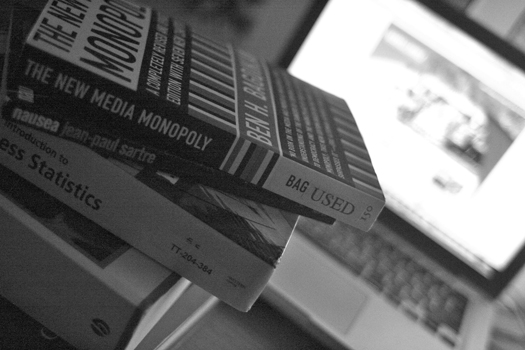Registration Integration Comes to FCLC
Course Books Can Now Be Bought at the Same Time as Registration
July 12, 2011

Published: March 30, 2011
Required books for courses are now available for purchase at the time of registration, as part of an innovative program between Fordham University and Barnes & Noble College Booksellers called “Registration Integration.
The new system, available on all three of Fordham’s campuses, allows students to price out the expense of the course, survey the reading load required and directly purchase the books they need in new, used or digital formats upon registration. This innovative approach is generating mixed reactions from Fordham students and faculty alike.
“I think this will be extremely helpful, especially in letting students see how heavy or light the book load for a particular class will be,” Patrick Coker, FCLC ’14, said. “If there is another class that I am interested in and it has a smaller number of books to buy, I would opt for that class over the one I was originally going to take.”
Katie Kozul, FCLC ’14, agreed that the new system might influence her course selection. “If the books required are of interest to me I think I would be more inclined and excited to take the course, whereas if the books are boring I may have precautions about taking the course.”
While the system would be helpful, Lauren Rushing, FCLC ’12, disagreed that the amount of books required for a course would influence her course selection. “If there are too many books to buy, I would probably not opt for another class but rather wait and talk to the professor about what books are going to be absolutely essential,” Rushing said.
For some, the new feature has students more inclined to buy books online rather than from the bookstore. “It’s so convenient. You can get your books all at one time without even having to search around for them,” Coker said.
However, the new system has not swayed many students from their faithful allegiance to popular discounted textbook sites like Amazon.com and Half.com. “I think I would still opt to purchase books elsewhere. You can save a lot of money and can find some really good deals,” Kozul said.
Hanna Zin, FCLC ’13, is another online shopper unfazed by the new feature. “The Fordham bookstore is ridiculously overpriced, in my opinion,” Zin said. “ I have never bought a single book there. I’ve always been able to find the exact same editions of my necessary books for a fraction of the price on Amazon.”
For many students, the biggest drawback that comes from ordering textbooks online is not having the book in time for the start of the course. For students like Rushing, the new system allows this to be avoided. “Knowing what books I need at the time of registration is helpful because it will allow me to find them on discounted websites and make sure I receive them in time for the start of the specific course,” Rushing said.
In a press release, Nicola Pitchford, associate vice president and associate chief academic officer, expressed the same point. “Book purchasing for students should be less stressful, and faculty will be more able to count on students having the reading in hand from the first day of class,” Pitchford said.
Philip Sicker, associate chair and professor of English, was not as optimistic. “There is no possible way that every professor for every course will be able to provide a reading list at the time of registration,” Sicker said. “There will be a certain number of faculty who just won’t be able to do this and some students who will not prefer to take advantage of this because they can get their books elsewhere for cheaper.”
Despite this new feature being implemented as the English department boycotts the bookstore, Sicker was not confident that it would influence the bookstore’s relations with the English department. “I think this will have no impact on the boycott in place,” Sicker said. “What bothers me the most is that since Barnes & Noble might increase online sales because of this, this might be a disincentive to improve actual bookstore operations.”












